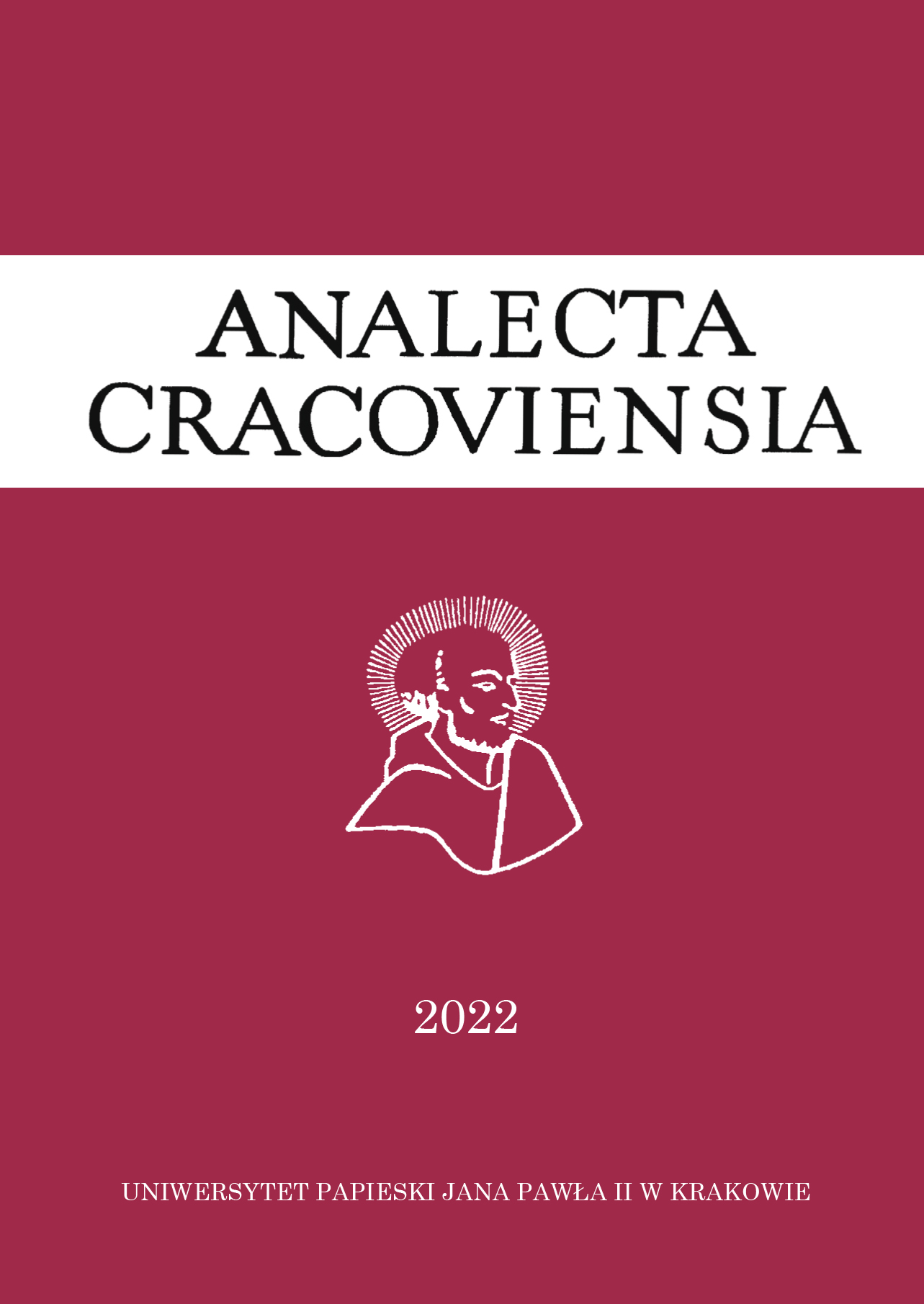The influence of Balthasar’s thought on Tischner’s interpretationof the problem of God’s intratrinitarian freedom
DOI:
https://doi.org/10.15633/acr.5403Keywords:
finite-human freedom, infinite-divine freedom, intratrinitarian relations, Tischner, BalthasarAbstract
The article examines the problem of the influence of Balthasar’s thought on the dynamics of Tischner’s reflection on the issue of the intratrinitarian freedom of God and the consequences for human freedom related to this subject. Using the method of comparative analysis of the contribution of both authors and taking into account the chronology of their publications, specific time frames and specific substantive premises are established that affected significant changes in Tischner's perception of the issue of God’s freedom. Tischner’s interpretation of Balthasar's concepts of infinite and finite freedom is also thoroughly analyzed. Both similarities and significant differences in the approaches of both authors are shown, especially in the context of the ontological and agathological approach to this subject. The work is concluded with an analysis of the apology, carried out consistently by both authors, of Christian vision of human freedom, originating and immersed in the freedom of God, in the confrontation with the Enlightenment-atheistic model of absolutized human freedom, in which, exactly due to the lack of the relationship with God, freedom gradually deteriorates and consequently undergoes annihilation.
References
Augustyn z Hippony, O Trójcy Świętej, Kraków 1996.
Balthasar H. U. von, Theodramatik, Bd. 1–4, Einsiedeln 1973–1983.
Balthasar H. U. von, Theologik, Bd. 1–3, Einsiedeln 1985–1987.
Balthasar H. U. von, Herrlichkeit. Eine theologische Ästhetik, Bd. 1–3, Einsiedeln 1961–1969.
Bieler M., Freiheit als Gabe. Ein schöpfungstheologischer Entwurf, Freiburg im Breisgau 1991.
Greshake G., Der dreieine Gott: Eine trinitarische Theologie, Freiburg im Breisgau 1997.
Pesch O. H., Frei sein aus Gnade: theologische Anthropologie, Freiburg 1983.
Pesch O. H., Peters A., Einführung in die Lehre von Gnade und Rechtfertigung, Darmstadt 1989 [Wissenschaftliche Buchgesellschaft].
Tischner J., Etyka solidarności, Kraków 1981.
Tischner J., Filozofia dramatu, Kraków 2012.
Tischner J., Ksiądz na manowcach, Kraków 2007.
Tischner J., Łaska i wolność, „Znak” 444 (1992), s. 4–26.
Tischner J., Nieszczęsny dar wolności, Kraków 1996.
Tischner J., O Bogu, który jest blisko: Wprowadzenie do lektury O Trójcy Świętej św. Augustyna, w: Augustyn z Hippony, O Trójcy Świętej, Kraków 1996, s. 9–20.
Tischner J., Podglądanie Pana Boga, „Znak” 511 (1997), s. 8–24.
Tischner J., Spór o istnienie człowieka, Kraków 2011.
Tischner J., Wolność – łaska wszystkich łask, w: J. Tischner, Nieszczęsny dar wolności, Kraków 1996, s. 10–13.
Tischner J., Życie wewnętrzne Boga, w: J. Tischner, Ksiądz na manowcach, Kraków 2007, s. 88–101.
Wołowski L., Problem niezależności refleksji dramatycznej J. Tischnera od myśli teodramatycznej H. U. von Balthasara, „Analecta Cracoviensia” 51 (2019), s. 141–160.
Downloads
Published
Issue
Section
License

This work is licensed under a Creative Commons Attribution 4.0 International License.
Authors who publish with this journal agree to the following terms:
- Authors retain the copyright and full publishing rights without restrictions, and grant the journal right of first publication with the work simultaneously licensed under a Creative Commons Attribution 4.0 International License that allows others to share the work with an acknowledgement of the work's authorship and initial publication in this journal.
- Authors are able to enter into separate, additional contractual arrangements for the non-exclusive distribution of the journal's published version of the work (e.g., post it to an institutional repository or publish it in a book), with an acknowledgement of its initial publication in this journal.
- Authors are permitted and encouraged to post their work online (e.g., in institutional repositories or on their website) prior to and during the submission process, as it can lead to productive exchanges, as well as earlier and greater citation of published work (See The Effect of Open Access).

